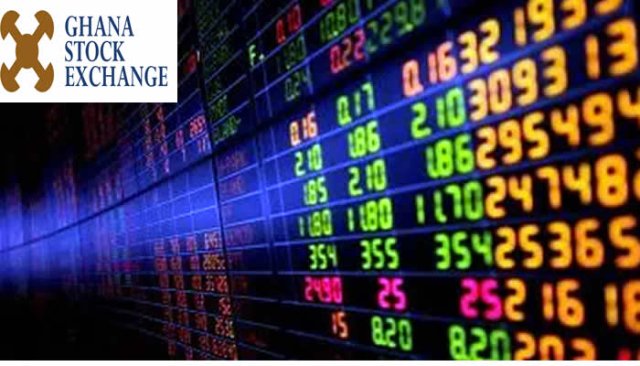24% GSE growth likely but key risks threaten gains – Databank’s Boahen
The Ghana Stock Exchange (GSE) could register a return of 24% by the end of 2021, but risks missing the mark due to current policies, according to Alex Boahen, Head of Research at Databank.
Mr Boahen told theghanareport.com, “sentiments are largely positive”, but the 2021 budget could hurt companies.
On the back of poor performance in 2020, the GSE Year-To-Date return was 13.99% at the end of the first quarter with the potential to grow further.
As firms look to bounce back after the COVID-19 impact, the government introduced some taxes and levies in the 2021 budget to shore up revenue.
At least six taxes are on the table, with parliament approving some recently.
The taxes include:
-Energy Sector Recovery Levy of 20 pesewas per litre on petrol/diesel under
-Sanitation and Pollution Levy (SPL) of 10 pesewas
-COVID-19 levy of 1% on National Health Insurance Levy (NHIL)
-COVID-19 tax of 1% on VAT
-Financial sector clean-up levy of 5% on profit-before-tax of banks
-Road tolls review
-Gaming tax
Mr Boahen observed the system is expected to be tighter this year due to the 5% bank levy and other taxes on gross profits.
“Increase in taxes is likely to shrink ROE (Rate On Equity) for Ghanaian banks, and that could also affect their valuation on the market”.
“It is a negative thing for investors” because it would add to corporate taxes and stabilization levies, with bank taxes reaching 35%.
MTN Ghana is currently driving the GSE gains, recording a Year-To-Date increase of 32% in its share price.
“Looking at where MTN has reached in the market, we need the financial sector to rally to support the growth, but if there is no strong performance from the banking sector, we may not see a significant rise in the market,” he said, painting a gloomy picture.
For the 2020 period, GCB Limited recorded a paltry 4% rise in profits.
Stanchart had an impressive 70% yields, but Republic Bank Ghana Limited posted losses.
Other listed firms are expected to release their audited financial statement in the next few weeks.
The impact of COVID-19 in the shutdown and production dip in some companies affected loan payments with some rescheduling timelines with lending institutions.
However, Mr Boahen hopes the financial reports would be encouraging to prevent a drag of the Financial Sector Index (FSI) on the bullish momentum.
“The performance hasn’t been great” for the banking sector, which is the most actively traded besides MTN, but share prices for most of the banks have been “sluggish”.
With the risk of the COVID-19 lingering, the economy is not operating at the optimal level.
Consumer discretionary spending could be affected because of the new taxes on VAT and fuel, he underscored.
The ripple effect is the hike in transportation fares and prices of goods and services.
COVID-19 has affected average citizens’ spending power, and a higher cost of products will deter purchases of non-essential commodities, which will hamper company revenue.
He pointed out that the beverage industry, with firms like Guinness Ghana Breweries Limited (GGBL), depends on discretionary spending.
This could impact product consumption and company profitability.
Another example cited was Fan Milk Limited products which also depends on excess disposal income.
On the positive side, Mr Boahen said taxes could raise government revenue.
The achievement of a stable inflation and exchange rate would be an incentive for investors.
Additionally, he believed that MTN Ghana was still undervalued, so there is a tendency for further growth to push the market up.
“The general expectation is that the bull run will still continue,” he added.
Besides MTN Ghana, most stocks are undervalued and remain undervalued, which has attracted investors to purchase those at rock bottom prices.



